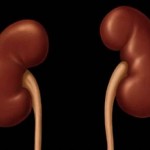Almost everyone is familiar with heart disease, cancer, stroke, diabetes, and high blood pressure. While these are probably the leading causes of health problems and death, most people fail to realize that kidney disorders and overall poor kidney health can be a major contributor to the development of many of these chronic diseases.
 To understand how kidney health and various kidney disorders are related to other chronic disease, it is important to know the role of the human kidney towards overall health and wellbeing. One of if not the single most important functions of the kidney is to filter and clean the blood, removing and keeping it free of toxins and other waste products.
To understand how kidney health and various kidney disorders are related to other chronic disease, it is important to know the role of the human kidney towards overall health and wellbeing. One of if not the single most important functions of the kidney is to filter and clean the blood, removing and keeping it free of toxins and other waste products.
When the kidney is not able to properly execute its functions, the result is poor health, and eventually can even result in death. Kidney failure causes toxins and waste products to accumulate in the body, and disrupts the chemical balance, viscosity (thickness) and volume of blood and other body fluids. Eventually, this can lead to high blood pressure (hypertension) and diabetes which in turn can lead to heart disease and stroke. Furthermore, the compromised quality of blood leads to a depleted immune system which increases the risk of cancer and other serious diseases.
In addition to filtering the waste in your body, the kidneys also play a role in releasing the enzyme rennin which controls blood pressure. The kidneys also help the body convert vitamin D into its active form (vitamin d3, or cholecalciferol) which helps with the absorption of calcium from the intestine (for strong bones and teeth) and producing the protein erythropoietin which stimulates the production of red blood cells. Lack of red blood cells can mean you are anemic and can cause anemia-related fatigue.
For more, see this related story about kidney health and hypertension (high blood pressure).
